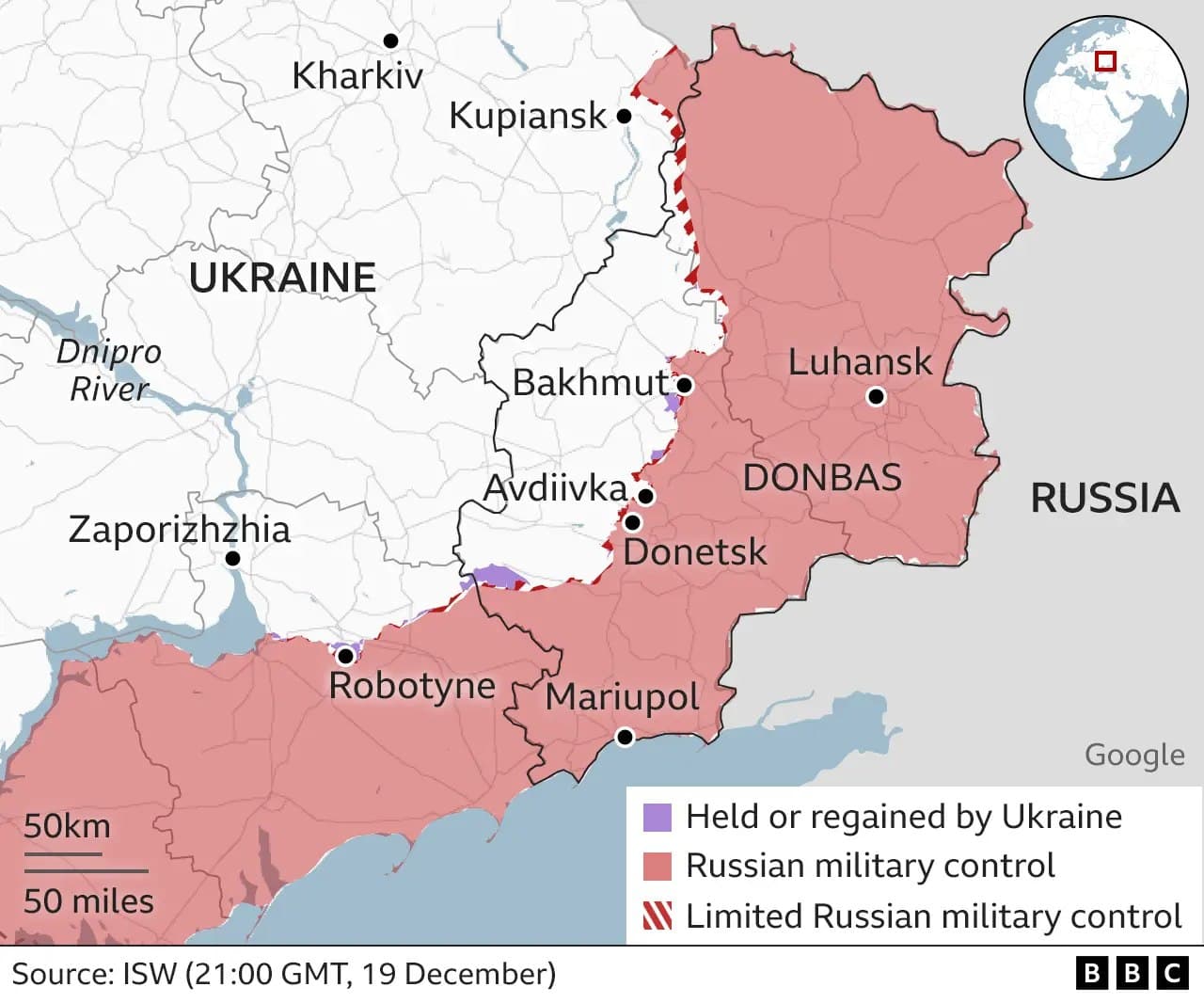Putin Demands Ukraine"s Immediate Withdrawal from Donetsk to Halt Ongoing War
In a significant escalation of tensions in the ongoing Russia-Ukraine conflict, Russian President Vladimir Putin has reportedly demanded that Ukraine withdraw its military forces from the eastern Donetsk region. This demand is framed as a preliminary step toward negotiating an end to the war, which has caused widespread devastation and loss of life since its inception. The request, detailed in a report by the Financial Times, raises critical questions about the future of diplomatic relations between the two nations and the broader implications for regional stability.
Background & Context
The Donetsk region, part of the larger Donbas area, has been a focal point of conflict since 2014, when Russia annexed Crimea and pro-Russian separatists declared independence in parts of eastern Ukraine. The region has seen intense fighting, leading to a humanitarian crisis that has displaced thousands and resulted in significant casualties. Putin"s latest demand comes amid ongoing military operations and counteroffensives by Ukrainian forces, particularly as the Ukrainian 79th Air Assault Brigade recently launched a rapid counterattack near Dobropillya, seeking to reclaim territory from Russian-backed separatists.
As previously reported, the conflict has not only affected the immediate combatants but has also drawn in international responses, with the European Union and the United Kingdom reaffirming their support for Ukraine against Russian aggression. The geopolitical stakes are high, with the potential for further escalation if diplomatic solutions are not pursued earnestly.
Key Developments
Putin"s demand for Ukraine"s withdrawal from Donetsk is seen as a strategic maneuver, potentially aimed at consolidating Russian control over the region while seeking to shift the narrative of the conflict. The Kremlin has framed this request as a necessary condition for peace talks, raising concerns that it may be a tactic to buy time for military operations rather than a genuine offer for dialogue.
Ukrainian officials have responded cautiously to the demand, emphasizing the need for a comprehensive peace plan that includes not only territorial integrity but also accountability for war crimes committed during the conflict. The Ukrainian government has consistently maintained that any negotiations must involve the complete withdrawal of Russian forces from occupied territories, a condition that appears far from being met based on Putin"s latest statements.
Broader Impact
The implications of Putin"s demand extend beyond the immediate conflict in Donetsk. Analysts suggest that this move may provoke further military escalations as both sides reassess their strategies. The potential for increased violence raises alarms among international observers, particularly as NATO countries continue to monitor the situation closely.
Moreover, the demand comes at a time of heightened political tension in Europe, with recent developments such as the Labour Party polling at a historic low in the UK, leading to questions about the stability of Western alliances in the face of external threats. The interconnectedness of these events highlights the precarious nature of international relations during times of conflict.
What"s Next
Looking ahead, the international community will likely play a pivotal role in shaping the trajectory of the conflict. Continued diplomatic engagement, alongside military support for Ukraine, appears essential to counter Russian advances and facilitate a negotiated settlement. The EU and UK have vowed unwavering support for Ukraine, and discussions regarding potential security guarantees are anticipated to intensify in the coming weeks.
As the situation unfolds, the possibility of a trilateral summit involving Western leaders, including former U.S. President Donald Trump, may emerge as a key platform for addressing security concerns and reinforcing commitments to Ukraine. The global focus remains on finding a sustainable resolution that respects Ukraine"s sovereignty while addressing the complex geopolitical dynamics at play in Eastern Europe.


![[Video] Heavy clashes and gunfire reported in Baghdad, Iraq](/_next/image?url=%2Fapi%2Fimage%2Fthumbnails%2Fthumbnail-1768342239932-848qsh-thumbnail.jpg&w=3840&q=75)




![[Video] Gunfire between Iraqi security forces and Sadr militias in Baghdad](/_next/image?url=%2Fapi%2Fimage%2Fthumbnails%2Fthumbnail-1768343508874-4redb-thumbnail.jpg&w=3840&q=75)
